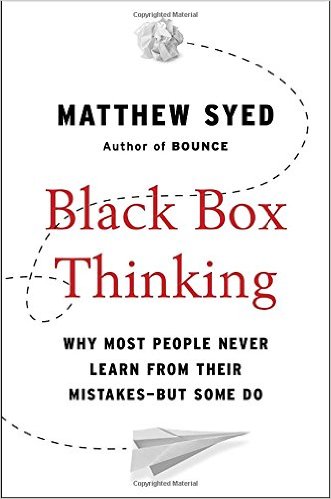
Black box thinking starts by storytelling the undeniable mistakes in the healthcare sector, particularly with the case of Elaine Bromiley’s. It appears that healthcare industry was not open to mistakes that are happening inside especially if the case was life-threatening because the whole industry encourages 0% mistakes since they’re dealing with life itself. Any mistakes made will be costly and unforgivable. With this, the author clearly stated that mistakes are essential and responsible for the direct improvement, and I have no qualms for that. He goes on with other stories like unjust justice system which blames an innocent suspect, discovery of dropbox through failures and flaws of the business model of other companies, and so forth.
As I read this book, I also learned something that is related to our thinking biases, namely “cognitive bias” which affects the way we interpret failures which I haven’t realized till then since we recreate or reframe the way we view failures which I will admit to myself as well.
It was good that the author did some further emphasis as why we really have to embrace failures and how to learn from it 100% of the time to minimize redundant failures along the way. In fact, I bought this book just for the very same reason to optimize my learnings when I fail. But it would have been made shorter. At some point, I got bored in lengthy history recaps that emphasize failure in the past. But what I like most about this book is the later part where he emphasized that failures or mistakes are a way of improving one’s own creativity. At some point, it can lead us to create or innovate things, which I thought it’s something I lack(creativity). I’ve been passionate in doing something creative for a long time, be it an art, a creative web design of the sorts. I didn’t comprehend that failures are part of making your creation or creativity flourish and is applicable for creativity as well. That’s where I appreciate this book for the better.
Overall, what was explained in this book is self-explanatory and can be realized with common sense as failure is really a way for us to learn. We all know that. Or maybe I just read lots of self-help books that I wasn’t able to pick up lots of things from this book. But this is not to say this book is bad or unreadable at all. For beginners, you can learn a lot from this book. But for like me who reads a lot of self-help books and blogs every day, I think I only learn a little bit from this. But I’m still grateful I read this.